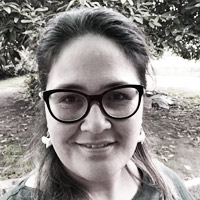A life less ordinary
At the age of fourteen, Victoria University Master of Education graduate Bianca Elkington was told, in front of her class, that she didn’t need to bother with maths homework because she was Māori.

It was this that set her on her career path into teaching. “Not for the purpose of teaching in a classroom, but to give me the tools to understand the language of teaching and learning, so I could support other Māori in their journey,” says Bianca.
“My intention has always been to work in a space that allows a greater voice for Māori whānau in school. I saw iwi-based learning support hubs as a way to do this effectively and in a way that worked for the community.”
Bianca established Te Puna Mātauranga in 2015 to provide additional support outside of the classroom to students who need it. Based in Porirua, Te Puna Mātauranga aims to support the achievement of whānau Māori in education, through a strengths-based approach to teaching and learning.
“We identify students through iwi communication, school networks, meeting with principals and identifying those whānau they think would benefit from iwi-based support, then we start to make the connections,” says Bianca.
Te Puna Mātauranga currently has around 120 students registered across a variety of programmes, which they attend weekly, in the evening and after school. Whānau also attend monthly workshops aimed at increasing their knowledge and supporting them to support their tauira at home and at school.
Now a seven-strong staff of iwi educationalists, they have also developed programmes where they have seen a gap for secondary students. Kaitiaki o te Taiao is an example of this.
“We promote kaitiakitanga and encourage our students to continue studying science at school,” says Bianca. “We do this alongside Mātauranga Māori to enable our Māori students to see where they fit.”
Bianca says it was Victoria University’s Dr Hiria McRae’s Critical Pedagogies of Place paper that gave her the tools to think more deeply about how she could develop her ideas into something more sustainable.
“My intention was always to work in a space such as Te Puna Mātauranga. I always heard the word ‘transformative’ during my studies and I guess that is the best way to describe this work,” she says.
“We have had many experiences where simple solutions are the answer to things that inside schools seem very complex. That is one of the most rewarding things.”
